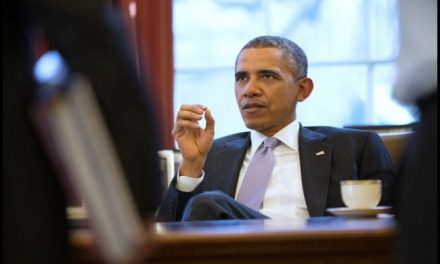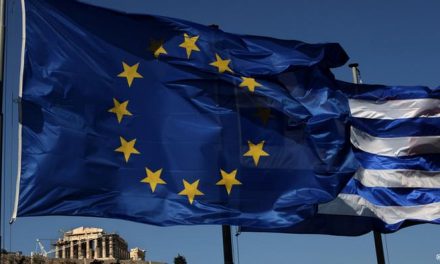As if transatlantic relations weren’t bad enough already. U.S. President Donald Trump’s protectionist policies and his decision not to implement the Paris Agreement on climate change were more than enough to rattle Washington’s European allies and expose fundamental differences in the transatlantic relationship.
But now, a sanctions bill agreed by the U.S. Senate and House of Representatives aimed at punishing Russia for its alleged interference in the 2016 U.S. presidential election has further exacerbated ties and is leading to a nasty dispute. In reality, the bill punishes European companies working with Russia.
This row is not just between Washington and Brussels. It is also between EU member states. The big risk is that if the bill is passed when lawmakers vote on July 25, it could break the unity that Europe and the United States forged in imposing and rolling over sanctions against Russia for its annexation of Crimea in March 2014 and its subsequent invasion of parts of eastern Ukraine. Russia could end up as the main beneficiary of this latest transatlantic spat. European companies and European unity would be the losers.
Under the bill, companies that support Russia in building energy export pipelines would be fined. In particular, the bill singles out Nord Stream 2. This project, which would expand an existing gas pipeline from Russia to Germany under the Baltic Sea, is led by Russian energy giant Gazprom. Its partners consist of five major European energy companies: France’s Engie, the British-Dutch firm Royal Dutch Shell, Austria’s OMV, and Germany’s Uniper and Wintershall. Nord Stream 2 is just as controversial as the original Nord Stream pipeline.
Poland and the Baltic states claim that Nord Stream 2 will increase, not weaken, Europe’s dependence on Russian gas. After several years of criticizing the German government’s support for Nord Stream 2, maybe these countries view the U.S. sanctions as a chance to put pressure on Berlin to end its support for the project. Ukraine, which is still a major transit country for Russian gas exports to Europe, argues the expansion project will rob Kyiv of much-needed transit fees. The main supporters of Nord Stream 2 maintain it will increase the EU’s plans to diversify its gas imports at a time when Europe’s own gas production is declining.
When the new U.S. sanctions bill was first unveiled, Germany and Austria accused Washington of using the measures to allow U.S. energy companies to enter the lucrative European market by shipping liquefied natural gas to new terminals in Europe and thus make up any shortfall in Russian gas imports. Critics of Nord Stream 2 argued that Berlin and Vienna were simply defending their energy ties with Gazprom and their investments in the project.
There is, however, a wider aspect to the bill that goes beyond Nord Stream 2. Companies working with the Russian energy company Lukoil, which is developing the large Shah Deniz gas field in Azerbaijan, would also be fined. Caspian gas shipments to Europe via the Southern Gas Corridor, which would be fed gas from the Shah Deniz field, would be affected. That would deny Europe the chance of more energy security and diversification.
Then there is the Caspian Pipeline Consortium, in which the U.S. company Chevron holds a 15 percent stake. That too would be hit, because Russia holds a 24 percent stake in the project. As for the planned Turkish Streampipeline, which would send Russian gas to Turkey under the Black Sea, the proposed U.S. sanctions would further increase antagonism between Ankara and Washington.
The European Commission, the EU’s executive, has stepped into this dispute in an uncharacteristically robust fashion—though frankly, it’s hard to see how much leverage the commission has at its disposal. The commission’s president, Jean-Claude Juncker, warned that “the measures could impact a potentially large number of European companies doing legitimate business . . . with Russian entities.” Juncker proposed to seek “public or written reassurance” from the United States that sanctions would not target EU interests. Another option being considered is to use European law to prevent the U.S. measures from being “recognised or enforceable” in Europe.
The reaction from the commission is understandable. The U.S. measures hit European interests. The sanctions serve the interests of American companies that want to expand their presence in Europe. Above all, these unilateral measures could damage the unity of the transatlantic relationship when it comes to keeping the existing sanctions on Russia.
There is one glimmer of hope. The latest version of the bill states that the president may introduce sanctions “in coordination with allies of the United States.” That just might avert a dispute that would deal another blow to transatlantic unity.



















